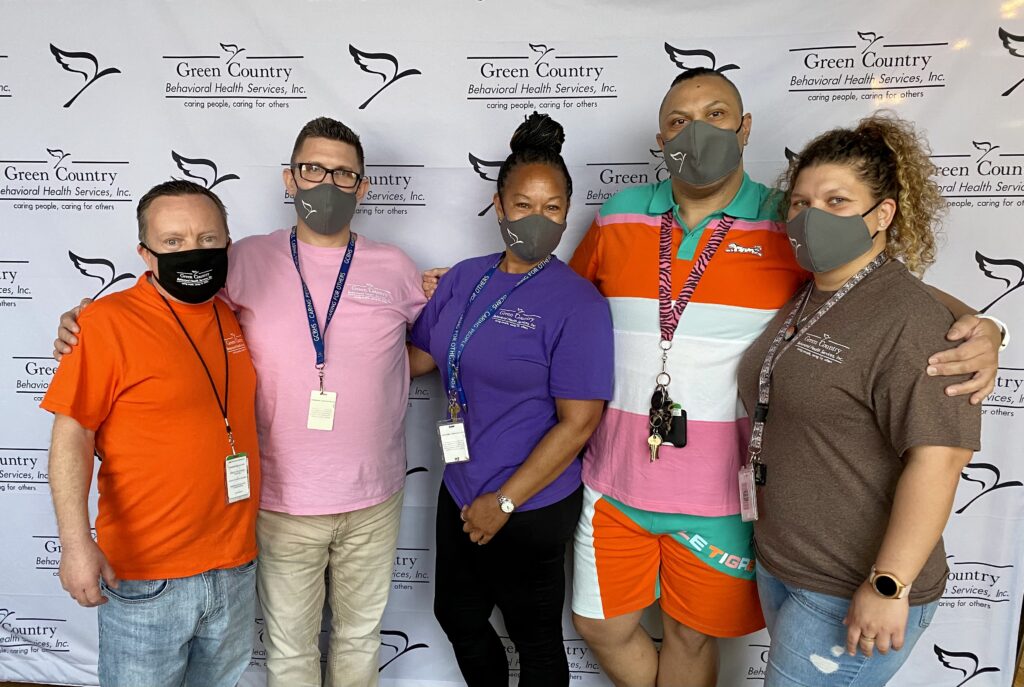
What are Co-Occurring Disorders?
Approximately 7.9 million adults in the United States struggle with co-occurring disorders.
If someone has both addiction and a mental health disorder, they are classified as having co-occurring disorders (a.k.a. dual diagnoses). These disorders impact nearly every aspect of an individual’s mental, physical, and spiritual life. Because both disorders impact a person’s well-being, diagnosing both disorders can be difficult. Many times, their symptoms overlap. People often receive treatment for one disorder while the other remains untreated. This can increase the likelihood of consequences such as overdose, suicide, or homelessness.
You Are Not Alone
According to the National Survey of Substance Abuse Treatment Services (N-SSATS), roughly 45% of Americans seeking addiction treatmenthave both co-occurring mental and substance use disorders. This includes mental health disorders such as anxiety or depression. These conditions must be treated alongside the disease of addiction. After primary treatment, an aftercare plan will recommend continuing care options to address such conditions.
Co-occurring conditions that are often seen and treated include:
- Mood disorders: Clinical depression can destroy a person’s life. Along with anxiety, it is the primary co-occurring diagnosis reported by those seeking recovery. Anxiety is also common among people with addiction. These disorders involve more than temporary worry or fear. For a person with an anxiety disorder, the anxiety does not go away and can get worse over time.
- PTSD: Post-Traumatic Stress Disorder (PTSD) is a mental health problem that some people develop after experiencing a life-threatening or abusive event. This includes trauma from any type of verbal, physical, or sexual abuse. Both men and women can suffer from PTSD. Anger, depression, high anxiety, and insomnia are some symptoms of this disorder.
- Process addictions: Contrary to population belief, both men and woman can have eating disorders or disordered eating. Eating disorders can be life threatening and often occur alongside addiction. They include disordered eating, anorexia, bulimia, or a combination of all these conditions. Other process addictions, such as shopping, gambling, and sex addictions, are also common among people with drug addiction.
- Personality disorders: These include disorders such as borderline personality disorder (BPD). Other examples include obsessive-compulsive, paranoid, avoidant, narcissistic, and dependent personality disorders.
There is no one cause of addiction, but living with a mental health disorder may increase the likelihood of developing a substance use disorder — and vice versa. Everyone is different. In some cases, a mental health disorder develops before drug or alcohol abuse. In other cases, mental health symptoms are not apparent until after addiction takes hold of someone’s life. Either way, each condition can make the other worse than it would be on its own.
Treatment Begins with Assessment
Every patient receiving treatment must take part in a thorough behavioral health assessment. Assessments allow a treatment team to understand and diagnose co-occurring disorders, as well as other problems that may occur alongside addiction (such as liver failure or chronic pain). They help ensure that all co-occurring conditions are effectively treated. From an assessment, a treatment team can develop a plan for healing that guides the way to permanent recovery.
Integrated Treatment
Integrated treatment is comprehensive programming that offers all of the therapeutic resources necessary to help the individual heal physically, mentally, and spiritually. Research shows that an integrated approach to co-occurring disorders results in the best possible outcomes. This means that co-occurring disorders must be treated at the same time, in the same place, by the same treatment team. Today, this is considered the best evidence-based plan for sustained recovery.
A comprehensive treatment plan for people with co-occurring disorders should include:
- Evidence-based therapies
- Medical care (including medication, when appropriate)
- Psych services
- Case management
- Family education and programming
- Life skills training
- Spiritual support
Every client deserves a treatment plan designed with their individual needs in mind.
There is no cure for co-occurring disorders, but people can and do recover.
While there is no cure for any mental health disorder, including addiction, many with these conditions go on to lead incredible lives filled with hope and courage. Dozens of research-based therapies and treatment interventions are available for those living with co-occurring disorders. The key is receiving personalized treatment that is intensive and integrated. People with co-occurring disorders can recover with the help of long-term clinical, medical, and spiritual support.
Today is the day you begin getting well. Call our Addictions Services Team at 918-682-8407
